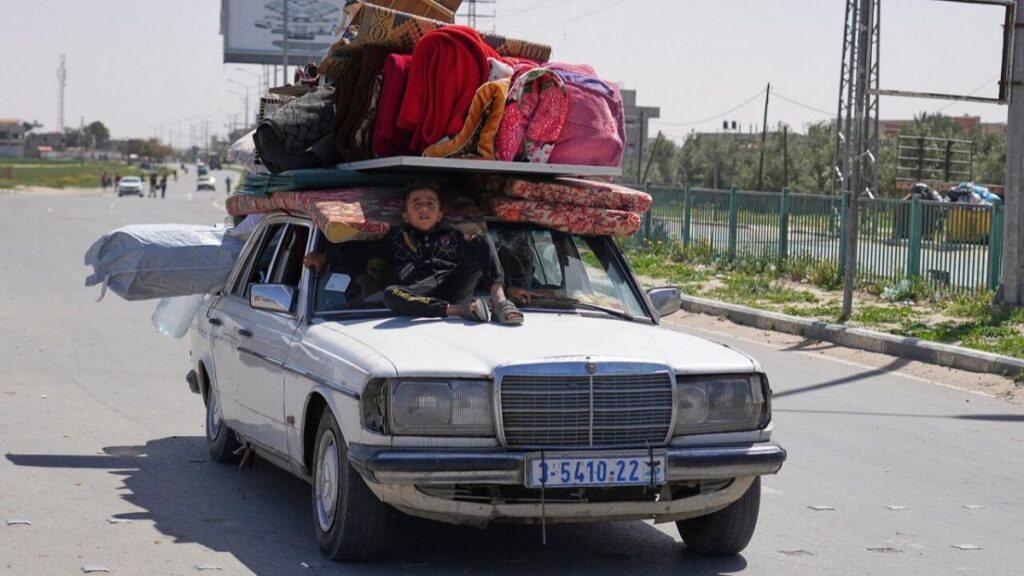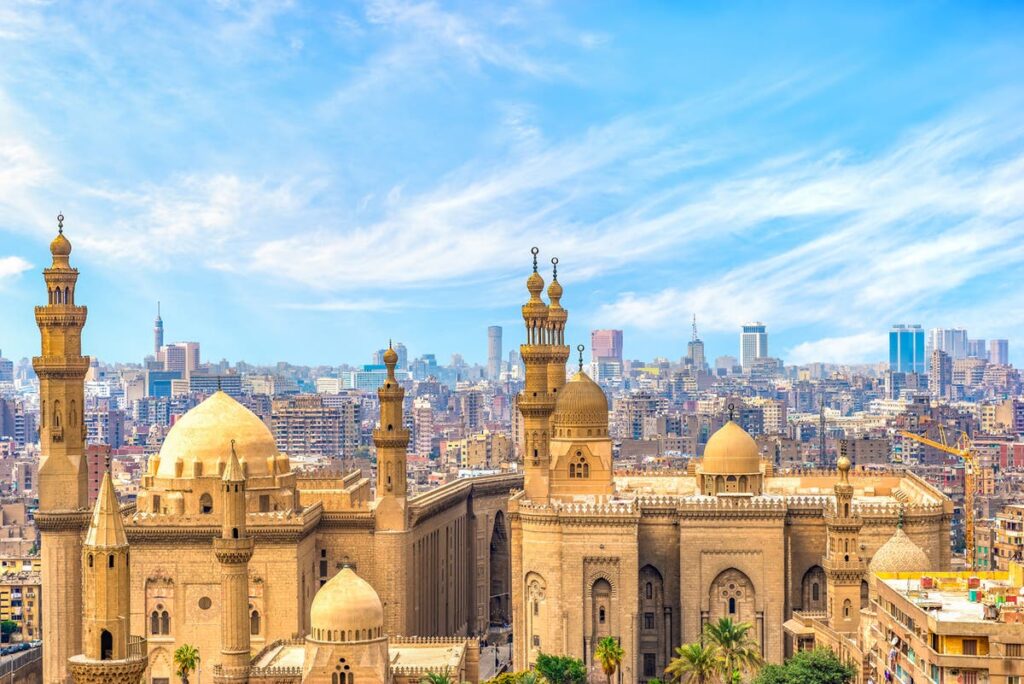UNRWA chief Philippe Lazzarini said 140,000 people are impacted by the Israeli military’s latest displacement orders, which indicate it could soon launch another major ground operation in Gaza’s southernmost city.
Thousand of Palestinians fled Gaza’s southernmost city of Rafah on Monday after the Israeli military issued new sweeping evacuation orders, indicating it could soon launch another major ground operation.
At least 140,000 people were affected by the evacuation order, according to Philippe Lazzarini, the head of UNRWA, the UN agency helping Palestinian refugees.
“People are treated like pinballs with constant military orders playing with their fate and lives,” Lazzarini wrote on the social platform X.
“This is causing panic, anxiety & uncertainty on the first day of Eid, a time to be with family & loved ones,” he added. Eid al-Fitr is normally a festive Muslim holiday marking the end of the fasting month of Ramadan.
People were seen travelling north with their belongings loaded onto donkeys and stacked on car roofs. Some families also travelled by foot carrying luggage as children held adults’ hands.
“We are dying. There is no food, no drink, no electricity, no medicine,” said Hanadi Dahoud, who was displaced from the southern city of Khan Younis. “We want to live. We just want to live. We are tired.”
Israel’s evacuation orders cover Rafah and nearby areas. Palestinians are being told to head to Muwasi, a sprawl of squalid tent camps along the coast.
Meanwhile, the Israeli military continued its ongoing ground operation in the north of Gaza, saying personnel were “continuing targeted operations to expand the security perimeter in northern and central Gaza.”
It also said troops “dismantled a one-kilometre-long underground tunnel route belonging to Hamas” and the troops also “located a workshop used for producing rockets and launchers.”
They said in a statement that “50 terrorists were eliminated” by the troops.
Path to a new ceasefire unclear
Israel ended its ceasefire with the Hamas militant group and renewed its air and ground war earlier this month. At the beginning of March, it cut off all supplies of food, fuel, medicine and humanitarian aid to the territory’s roughly 2 million Palestinians to pressure Hamas to accept proposed changes to the truce agreement.
Last May, Israel launched a major operation in Rafah, on the border with Egypt, leaving large parts in ruins. The military seized a strategic corridor along the border as well as the Rafah crossing with Egypt, Gaza’s only gateway to the outside world that was not controlled by Israel.
Israel was supposed to withdraw from the corridor under the ceasefire it signed with Hamas in January under US pressure, but it later refused to do it, citing the need to prevent weapons smuggling.
According to Israeli newspaper Haaretz, Israel has proposed a new ceasefire deal to mediators in Egypt and Qatar. The deal demands that Hamas release 11 living hostages and 16 bodies in exchange for an unspecified number of Palestinian prisoners, according to a senior Israeli official.
Under the terms, Israel would pause fighting in Gaza for 40 days, immediately after the release of the 11 hostages, during which negotiations for a next phase would take place. The official said that Hamas would also be required to release information on all the remaining captives by the fifth day of negotiations.
Israel has vowed to intensify its military operations until Hamas releases the remaining 59 hostages it holds — 24 of them believed to be alive. Israel has also demanded that Hamas disarm and leave the territory, conditions that were not included in the ceasefire agreement and which Hamas has rejected.
Hamas has insisted on implementing the signed agreement, which called for the remainder of the hostages to be released in exchange for a lasting ceasefire and an Israeli pullout. Negotiations over those parts of the agreement were supposed to begin in February but only preliminary talks have been held.
The war began when Hamas-led militants stormed into Israel on 7 October 2023, killing some 1,200 people, mostly civilians. The militants took another 251 people hostage, most of whom have been released in ceasefires or other deals.
Israel’s retaliatory offensive has killed more than 50,000 Palestinians, according to Gaza’s Health Ministry, which does not say how many were civilians or combatants. At its height, the war had displaced some 90% of Gaza’s population, with many fleeing multiple times.
Large areas of Gaza have been destroyed, and it’s unclear how or when anything will be rebuilt.
Premium IPTV Experience with line4k
Experience the ultimate entertainment with our premium IPTV service. Watch your favorite channels, movies, and sports events in stunning 4K quality. Enjoy seamless streaming with zero buffering and access to over 10,000+ channels worldwide.

















